These days, the trends of “grow your own,” “locally grown,” and my favorite, clever catch phrase, “eat the yard,” have added such flourish to the idea of eating fresh, that “vegetables” and “love” are commonly found in the same sentence. It is no surprise, then, that Vegetables Love Flowers, Companion Planting for Beauty and Bounty, by Lisa Mason Ziegler, has been readily received. This book is a wonder of friendly instruction, and should be at the top of your summer reading stack—a thorough how-to with a lively, pleasant pace, perfect reading for a shady spot or seaside, wherever you are welcoming summer.
Of course, the best place to read a sentence with “vegetables” and “love” is the Bible…
Better vegetables with love than a fatted calf with hatred
Proverbs 17:19 NIV
…likewise Ziegler’s fantastic, flower-filled work leads me back to the practice of God’s Word in three fulfilling ways.
Work Rewarded
While the idea of planting flowers among vegetable crops is not new, Ziegler directs the work of flower picking, or harvesting, to all diligence. Her experience impresses upon me that consistent cutting is not simply for pretty vases but a necessary practice to keep blooms producing and beneficial insects engaged in the garden.
It is the “cutting” in the cutting garden that keeps the flowers producing. The flowers then attract the good things we want and need in the garden…Harvesting flowers twice a week is a good habit to establish…make a date with the cutting garden and stick to it.”
—Lisa Mason Ziegler, Vegetables Love Flowers, page 33, 47
Her explanations have moved me to “make regular harvesting a way of life,” as Ziegler writes. She commands us to cut flowers, not only in the first joy of their early summer appearance, but regularly, weekly, routinely, summer into fall. May we be blessed by a King’s command to follow Ziegler’s directive:
Be strong and do not give up for your work will be rewarded.
2 Chronicles 15:7 NIV
Rewarded indeed, with plenty of flowers and healthy, pest-controlled vegetable produce.
Ezekiel’s Bouquet?!
Ziegler’s book reveals her success list of lovely, colorful best-performers in the working garden. It is a specific, detailed review: orderly, easy to read, a resource you won’t want to miss. I was surprised and delighted to find millet on the list, one of the ancient grains usually considered as a bread-baking ingredient:
Take wheat and barley, beans and lentils, millet and spelt; put them in a storage jar and use them to make bread for yourself.
Ezekiel 4:9 NIV
I have wanted to plant millet to better grasp this grain mentioned in God’s Word, yet now I am even more intrigued and moved by Ziegler’s commentary to get growing:
‘Lime spray millet’ is a great addition to bouquets. Its lime green color is so versatile that we plant it weekly alongside our sunflower successions… ‘Purple Majesty’ millet resembles corn-stalk foliage with a cattail head all in maroon. A very productive plant with regular harvest, it is a bird favorite.”
—Lisa Mason Ziegler, Vegetables Love Flowers, page 80, 81
She also highlights a few wheat varieties for their floral display. These will be fun to grow, especially for fall decorating.
Timing is Everything
Some of the greatest wisdom imparted from the Scriptures concerns timing, verses spoken by King Solomon, a leader noted for his horticultural knowledge.
There is a time for everything, and a season for every activity under the heavens:
a time to be born and a time to die,
a time to plant and a time to uproot,
a time to kill and a time to heal,
a time to tear down and a time to build,
a time to weep and a time to laugh,
a time to mourn and a time to dance,
a time to scatter stones and a time to gather them,
a time to embrace and a time to refrain from embracing,
a time to search and a time to give up,
a time to keep and a time to throw away,
a time to tear and a time to mend,
a time to be silent and a time to speak,
a time to love and a time to hate,
a time for war and a time for peace.
What do workers gain from their toil? I have seen the burden God has laid on the human race.
He has made everything beautiful in its time. He has also set eternity in the human heart;
yet no one can fathom what God has done from beginning to end.
Ecclesiastes 3:1-12 NIV
It is no surprise then, to find that the greatest counsel from this experienced farmer concerns timing. Admittedly, as time-stretched gardeners, seed sowing can become a matter of convenience, fitting our own schedules, not the seeds.’ Yet Ziegler motivates with her time-tested practices to get annual flowers growing as early as possible.
Flower blooms in the vegetable patch in early spring will jump-start the natural pest-control community…getting the beneficials into the garden earlier also gives their life cycles maximum benefit.
—Lisa Mason Ziegler, Vegetables Love Flowers, page 29, 30
Additionally, see her section on “Why is Planting on Time so Important?” page 89
This Gardener Loves Vegetables Love Flowers

My garden has already benefitted from Lisa Mason Ziegler’s book, and I am convinced her straight-forward style makes Vegetables Love Flowers a gardener’s must-have. Settle into this important guide this summer, and enjoy “beauty and bounty” to season’s end.
We want each of you to show this same diligence to the very end, so that what you hope for may be fully realized.
Hebrews 6:11 NIV
Epilogue, September 2019
Vegetables Love Flowers won the Silver! Lisa Mason Ziegler was awarded a Silver Medal of Achievement in 2019 for her book from GardenComm, Garden Communicators International. Read how remarkable this accomplishment is in Lisa’s blog, where she reveals her struggle with dyslexia: Book Award? Me? Never!
Link to Lisa Mason Ziegler’s website www.thegardenersworkshop.com
Photo Credits:
©2018 Shelley S. Cramm

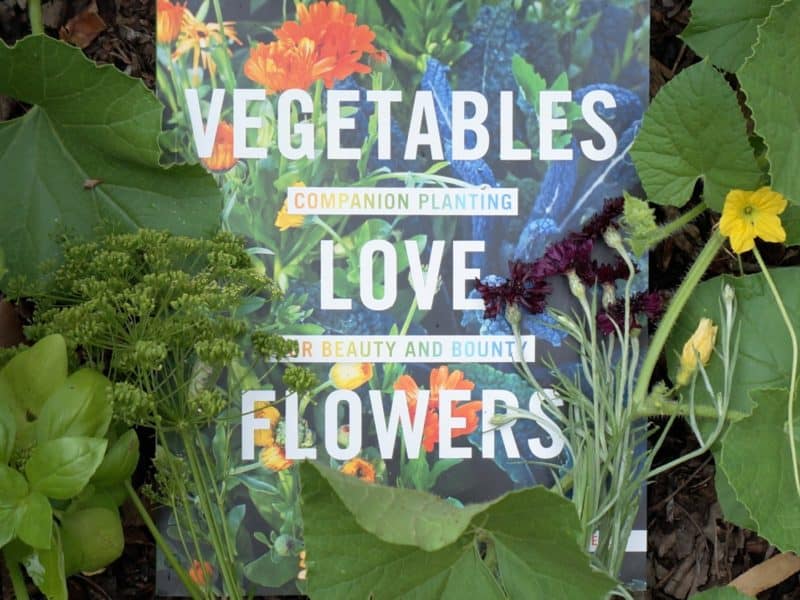



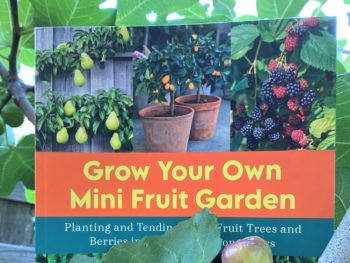
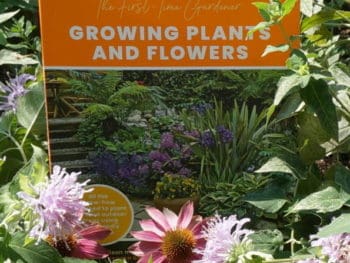
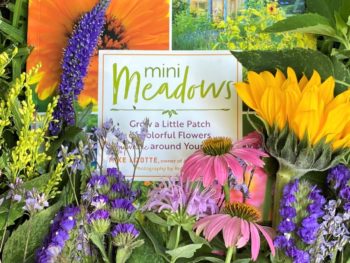
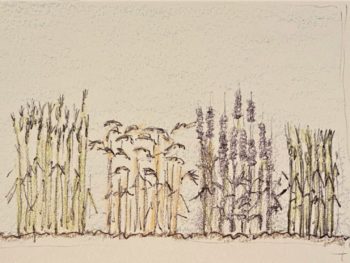


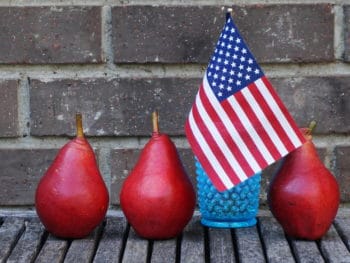

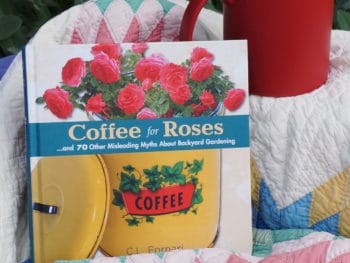
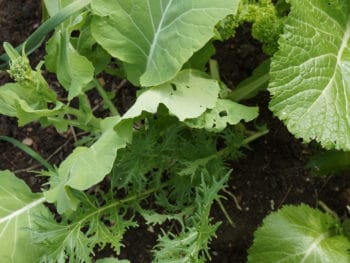

Ah, Ecclesiastics. A favorite passage which reminds me to order now- but plant after the heat subsides.
Amen, Lydia, timing (and waiting) is everything!! Always fun to have your thoughts and comments, blessings to you!!